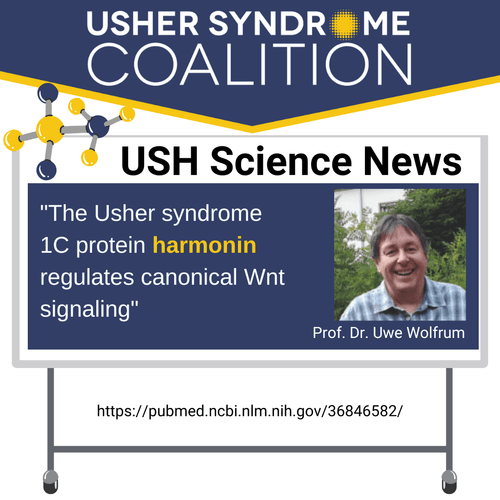Grounded in Science
A balance of research news and well-being for the Usher syndrome community.
A few reminders before getting to the good stuff. Let’s dive in!
- Our USH Local Social in Boston has been rescheduled for Saturday, September 16th, opening up this gathering to more people in the community in honor of Usher Syndrome Awareness Day! Meet others with USH while trying out a variety of accessible activities taught by leaders living with Usher syndrome. Family members, partners, friends - all are welcome!
- Check out the locations for our other USH Local socials here.
- Speaking of Usher Syndrome Awareness Day, if you haven’t already, please reach out to your governor to secure a proclamation for this day.
- A friendly reminder to join the Usher Syndrome Data Collection Program (USH DCP). We need your help to expand and improve medical research. By generating the most comprehensive data collection effort for the Usher community, we can accelerate research and the development of treatments and therapies.
- Have you joined the Usher Syndrome Coalition Discord Community Server? It’s a safe place for the community to connect with each other. Join here: https://discord.gg/czwHGaDu7W
Research Spotlight
AAVantgarde Bio and Usher Syndrome Type 1B
Usher syndrome type 1B (USH1B) is caused by mutations in the Myosin VIIA (MYO7A) gene. This gene is large in size, which makes gene therapy challenging due to the limited packaging capacity of adeno-associated viral (AAV) vectors. To overcome this challenge, researchers created a dual AAV8 vector platform to hold the MYO7A gene to be used as retinal gene therapy. These researchers have been able to successfully demonstrate proof of concept using mice models as well as non-human primates. (Ferla et al.)
AAVantgarde Bio is an Italian-based international biotechnology company that has two proprietary, AAV-based large gene delivery platforms. A recent funding initiative was secured, allowing them to move forward with validating the platforms in their two lead programs. This includes their program for USH1B, in which they will establish a first-in-man proof of concept in patients with USH1B. (GlobeNewsWire).
For more, check out our Current USH Research page specific to USH subtype as well as gene-independent therapeutic approaches.
In Case You Missed It: Science News Feature
The Usher syndrome 1C protein harmonin regulates canonical Wnt signaling
The Wolfrum lab recently published a paper titled, "The Usher syndrome 1C protein harmonin regulates canonical Wnt signaling." We already know that the USH1C gene encodes the protein harmonin which organizes protein networks in the retina and inner ear. In the study, the researchers found that harmonin plays a crucial role in the canonical Wnt signaling pathway, which is important for maintaining the health and function of the eye and retina. The study found that without the harmonin protein functioning properly, this pathway is disrupted, which can lead to the development of retinal diseases and vision impairment.
What this means for Usher syndrome: This discovery is significant because it sheds light on the underlying mechanisms of Usher syndrome and could lead to the development of new treatments and therapies for this rare disorder. It also helps better understand the role Wnt signaling plays in the eye and retina and how it can contribute to retinal diseases.
DISCLAIMER: The Usher Syndrome Coalition does not provide medical advice nor promote treatment methods. USH Science News is intended to help summarize more complex literature for the community to use at their own discretion.
For more science news, check out our Science News page, organized by treatment approach and type of Usher syndrome.
On Well-Being: Empowering Independence: Fostering Self-Determination
Parents, you may have wondered what the future might be like for your children. I know I did, especially early on, right after the diagnosis...
USH Life Hack of the Month
(Send your USH life hacks to info@usher-syndrome.org.)
“Adding raised stickers (button-like) to my microwave on the '30 Second' and 'Timer' buttons are less stressful for my eyes as I just feel for the raised buttons.”








